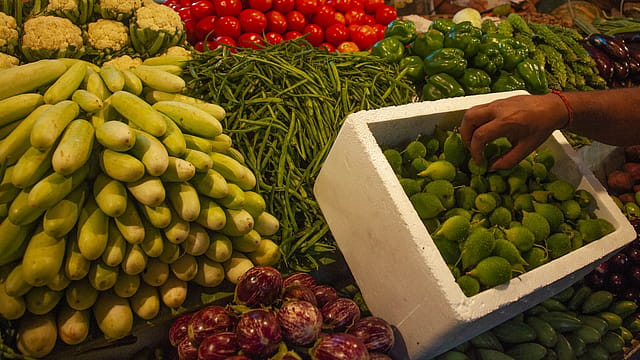Pakistan's inflation eases to 29.4% in June; GDP grew just 0.29% in 2022-23
ADVERTISEMENT

Cash-strapped Pakistan's headline inflation eased for the first time in the past seven months in June 2023 to 29.4% on a year-on-year basis from a record high of 37.97% in May 2023, thanks to a high base effect, shows data released by the Pakistan Bureau of Statistics.
The reduction in inflation comes following the government's decision to cut fuel prices in Pakistan, along with Pakistan federal bank raising the key benchmark rate to a record 22%.
With all economic indicators showing dismal performance in the financial year, Pakistan's gross domestic product (GDP) also grew at just 0.29% in the outgoing financial year, the economic data unveiled by Pakistan's finance minister Ishaq Dar shows.
In the latest tweet, Dar, however, said inflation has declined as compared to May. "AlhamdoLilah—Mubrook 1. CPI Inflation clocks in@29%: As per the data released by PBS, CPI inflation for Jun’23 clocked in at 29.4% compared to 38% YoY for May’23. 2. PSX added 2,334 points in the KSE100 index by 1 pm. 3. Pak Rupee vs Dollar in open Market," he tweeted.
January 2026
Netflix, which has been in India for a decade, has successfully struck a balance between high-class premium content and pricing that attracts a range of customers. Find out how the U.S. streaming giant evolved in India, plus an exclusive interview with CEO Ted Sarandos. Also read about the Best Investments for 2026, and how rising growth and easing inflation will come in handy for finance minister Nirmala Sitharaman as she prepares Budget 2026.
Dar also launched the Economic Survey 2022-23, which showcased the current government's achievements in the past year. However, most sectors seem to have missed the targets.
While the overall economy grew just 0.29% in the year against the target of 5%, crucial sectors like agriculture, industry, and services missed their annual targets and clocked slower growth at 1.55%, 2.94%, and 0.86%, respectively.
On the inflation front, Pakistan saw 29.2% inflation in the July 2022-May 2023 period, way higher than 11% during the previous year and against the government's target of 11.5%.
Last week, Pakistan, which is facing situations like extreme inflation, political uncertainty, and flash floods, inked a deal with the International Monetary Fund (IMF), a Staff-Level Agreement on a nine-month $3 billion stand-by loan arrangement. The new Stand-by Arrangement (SBA) builds on Pakistan's efforts under Pakistan’s 2019 EFF-supported program, which expires end-June.
"The Arrangement will help strengthen Pakistan’s foreign exchange reserves, enable Pakistan to achieve economic stability, and put the country on the path of sustainable economic growth, Insha’Allah," Dar said.
According to the IMF, "steadfast policy implementation" is key for Pakistan to overcome its current challenges, including through greater fiscal discipline, a market-determined exchange rate to absorb external pressures, and further progress on reforms, particularly in the energy sector.
In contrast, India's retail inflation hit a 25-month low of 4.25% in May 2023 as compared to 4.7% in April 2023, marking the third month that it remained within the Reserve Bank of India’s (RBI) target limit of 4% to 6%. Keeping in mind the steady downward pace of inflation, the RBI's monetary policy committee has reduced its inflation forecast for 2023-24 to 5.1% from 5.2% projected earlier.
India's Q4 GDP also expanded by 6.1% in the January-March 2023 period, thanks to a pickup in manufacturing activity. The RBI's MPC retained its gross domestic product (GDP) forecast for the financial year 2023-24 at 6.5% and most global agencies have said it will remain one of the fastest-growing economies in 2023.
